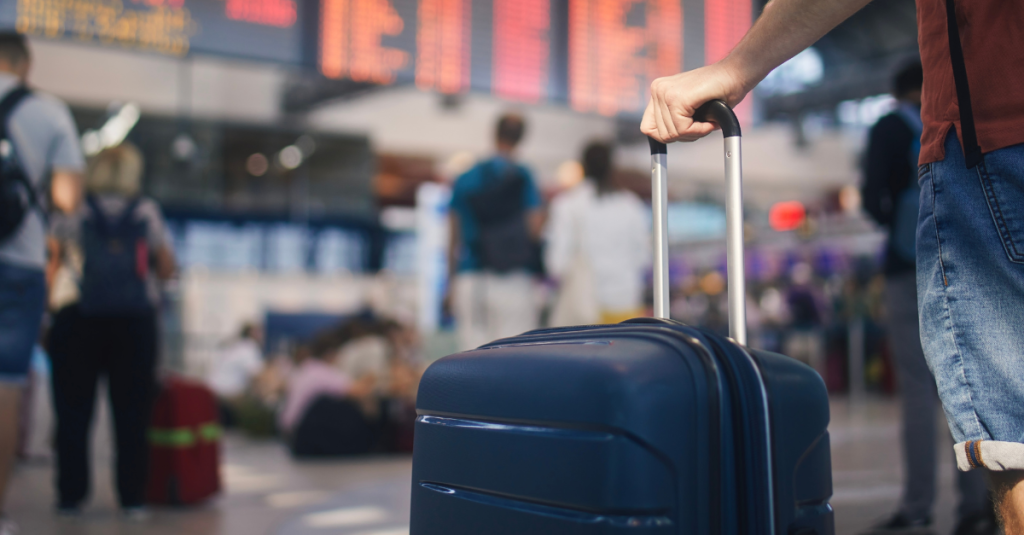In light of recent global IT outages affecting transportation sectors, Abta has offered essential advice for travellers. airlines, airports, and railway services have faced significant disruptions, leading to numerous cancellations worldwide.
By early Friday, more than 3,000 flights had been cancelled globally, though not all are directly tied to the ongoing IT issues. Travellers are urged to confirm the status of their routes and services via official channels.
Understanding the IT Outage Impact
The widespread IT outages that hit on Friday have posed challenges across various transportation sectors. With over 3,000 flights cancelled globally by 3pm, the aviation industry is particularly affected, although not every cancellation stems directly from these technical problems. Abta has emphasised the importance of checking flight status with airlines and airports directly.
In addition to flight disruptions, railways too are experiencing the strain of these outages. It is essential for passengers to determine any potential delays or cancellations prior to travelling. Abta further advises checking updates from rail service providers.
While the root cause is under investigation, initial reports indicate a software defect in Windows operating systems as a possible trigger. This has led to broader implications across industries, affecting not just travel but also services like card payments at various businesses.
Abta’s Advisory for Affected Passengers
In response to the disruptions, Abta has issued clear advice for travellers to help mitigate inconveniences. Checking with transport providers for the latest updates on cancellations or delays is crucial. This ensures that passengers can make informed decisions regarding their travel plans.
Specific guidance includes contacting both airlines and airports for those intending to fly. Passengers should also prepare for unexpected delays by carrying essential items such as medication or snacks in their hand luggage.
Preparing for Travel Delays
Travellers are being urged to prepare for any travel delays by packing essential emergency items. Ensuring that items like baby formula, nappies, and personal medications are packed can alleviate stress during unexpected hold-ups.
Abta’s advice extends to keeping informed about alternative travel options. For instance, finding other available flights or considering different transport modes can be a practical approach to minimise disruptions.
It is equally important for passengers to stay patient and flexible. As transport providers work to resolve the outages, understanding and cooperation are vital in navigating the situation smoothly.
Addressing Cybersecurity Concerns
The root of these disruptions seems linked to a cybersecurity flaw in a software update. Doug Merritt, a cybersecurity expert, explained that a defect in the software hit Windows systems hard, leading to significant operational challenges. This glitch has impacted various sectors including healthcare and finance, beyond just transport.
To mitigate risks, Abta encourages businesses to reinforce their cybersecurity protocols. Travellers should remain vigilant and ensure their transactions are secure, especially when financial services are compromised due to these IT issues.
Broader Impact Across Industries
The IT issues are not confined to transport alone. Industries such as finance and healthcare are feeling the strain. Card payments disruptions have been reported widely, affecting everyday transactions and causing ripple effects through supply chains.
Pharmacies and GP practices have faced significant challenges, with service delays impacting patients. This highlights the importance of resilient IT infrastructure to support essential services.
Businesses are advised to review and update their IT systems to prevent such widespread disruptions in the future. Lessons learned from this incident are critical for enhancing system robustness.
Expert Opinions on Navigating the Crisis
Industry experts suggest that staying informed and proactive is key to managing travel amidst disruptions. Regular updates from official transport and travel advisories help travellers make alternative arrangements promptly.
Moreover, ensuring that electronic devices are fully charged can be crucial, especially as power outages and delays could impact communication capabilities.
In light of these incidents, cybersecurity firms and IT specialists are likely to investigate deeper, providing insights and potential solutions to prevent future disruptions.
Conclusion Remarks
Amid ongoing disruptions, it is imperative for passengers to remain vigilant and adaptable. Abta’s guidance aims to alleviate some of the travel challenges faced by adapting swiftly to changes. By staying informed and prepared, travellers can navigate these uncertainties more effectively.
In summary, while the IT outage has caused widespread issues, Abta’s advice serves as a critical resource for navigating these disruptions. By following suggested guidelines, travellers can ensure their journeys are as smooth as possible despite the challenges.
Looking forward, reinforcing cybersecurity measures and preparing for unexpected scenarios could enhance resilience against future disruptions.

